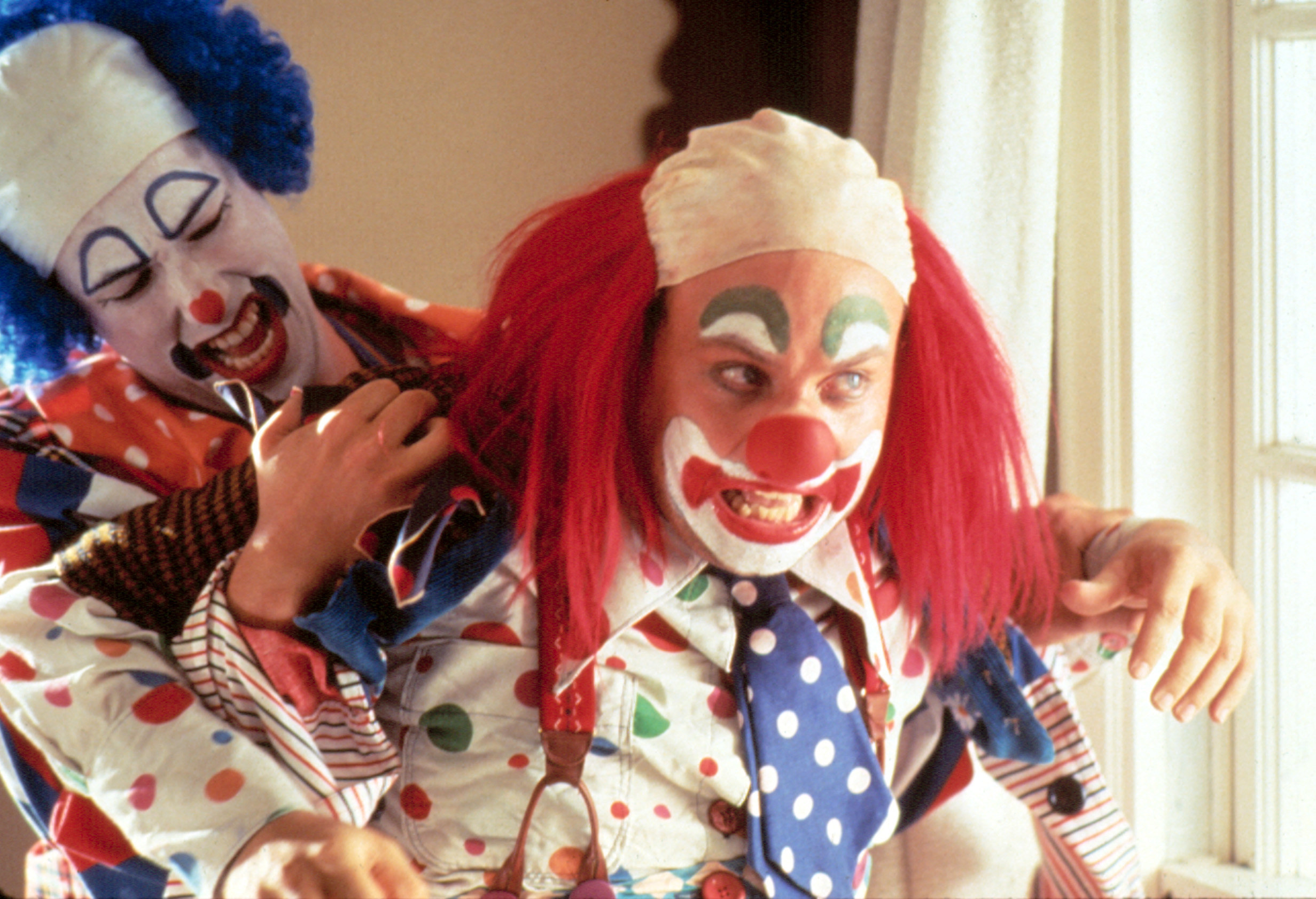The History and Origins of “Shakes the Clown”

The phrase “Shakes the Clown” has its origins in the 1991 film of the same name, directed by Bobcat Goldthwait. The film tells the story of a struggling clown named Shakes, who is constantly ridiculed and belittled, leading him to a path of self-destruction. While the film itself was a critical and commercial flop, the phrase “Shakes the Clown” has since become a popular and enduring part of popular culture.
The Origin of the Phrase
The phrase “Shakes the Clown” is directly derived from the title character of the film, Shakes, a clown whose real name is “Adam.” The film’s director, Bobcat Goldthwait, chose the name “Shakes” to reflect the character’s constant state of turmoil and instability. The character’s name is a metaphor for the struggles and frustrations that many people face in life, and the phrase “Shakes the Clown” has come to represent these struggles.
The Cultural Impact of the Film
While the film itself did not achieve mainstream success, the phrase “Shakes the Clown” has become a cultural touchstone, particularly among those who appreciate dark humor and outsider art. The film’s bleak and unflinching portrayal of a clown’s life has resonated with audiences, and the phrase has become a way to express empathy for those who are struggling.
Examples of the Phrase in Popular Culture
The phrase “Shakes the Clown” has been used in various forms of popular culture, including movies, TV shows, music, and literature. For instance, the phrase was used in the 2004 film “Eternal Sunshine of the Spotless Mind,” where it was uttered by the character of Joel Barish, played by Jim Carrey. The phrase has also been used in TV shows like “The Simpsons” and “South Park,” often as a way to make fun of someone’s misfortune or to point out the absurdity of a situation.
The Phrase’s Enduring Legacy
The phrase “Shakes the Clown” has become a cultural symbol of the struggles and frustrations of everyday life. It is a reminder that even those who seem happy and successful may be hiding their own inner turmoil. The phrase has also become a way to express solidarity with those who are struggling, reminding them that they are not alone. The film’s enduring legacy lies not only in its unique and often disturbing humor but also in its ability to resonate with audiences on a deeper level.
The Meaning and Interpretation of “Shakes the Clown”

The phrase “Shakes the Clown” is a multifaceted and evocative term that transcends its literal meaning. It carries a weight of symbolism and irony, offering a window into the human condition and the complexities of life. The phrase’s ambiguity allows for diverse interpretations, making it a powerful tool for expressing various emotions and experiences.
The Phrase as a Descriptor of a Person
The phrase “Shakes the Clown” can be used to describe a person who is clumsy, inept, or generally unsuccessful. This interpretation draws upon the stereotypical image of a clown as a figure of amusement and foolishness. The word “shakes” further emphasizes the character’s lack of control and composure, suggesting a sense of instability and unreliability.
For instance, someone might say, “He’s such a Shakes the Clown, always tripping over his own feet and making a mess of things.” In this context, the phrase is used to highlight the person’s clumsiness and lack of grace.
The Phrase as a Description of a Situation
The phrase can also be used to describe a situation that is chaotic, absurd, or generally out of control. This interpretation builds upon the inherent unpredictability and absurdity associated with the image of a clown. The phrase suggests that the situation is marked by a lack of order and logic, leaving those involved feeling helpless and bewildered.
For example, someone might say, “The whole meeting was a Shakes the Clown situation, with everyone arguing and nobody listening.” In this case, the phrase is used to capture the chaotic and disorganized nature of the meeting.
The Phrase as a Symbol of the Human Condition
On a deeper level, the phrase “Shakes the Clown” can be interpreted as a symbol of the human condition. The clown, despite its humorous exterior, is often seen as a figure of pathos and vulnerability. This duality reflects the inherent contradictions and complexities of human nature, where moments of joy and laughter are often intertwined with sadness and despair.
The phrase “Shakes the Clown” acknowledges the inevitability of failure and misfortune in life. It suggests that even the most well-intentioned individuals can stumble and fall, making mistakes and facing setbacks along the way.
The Irony of the Phrase
The phrase “Shakes the Clown” is also notable for its inherent irony. The word “clown” is typically associated with amusement and laughter, while the word “shakes” suggests a sense of unease and instability. This juxtaposition creates a sense of dissonance, highlighting the paradoxical nature of life.
The irony of the phrase lies in the fact that it can be used to describe both humorous and tragic situations. It can be used to poke fun at someone’s clumsiness, but it can also be used to express a sense of sadness and despair.
Examples of the Phrase in Different Contexts
The phrase “Shakes the Clown” is a versatile expression that can be used in a variety of contexts.
- In literature, the phrase can be used to create a sense of humor and absurdity, as in the works of authors like Charles Dickens or Lewis Carroll.
- In film, the phrase can be used to create a sense of pathos and vulnerability, as in the films of Charlie Chaplin or Buster Keaton.
- In everyday conversation, the phrase can be used to express a range of emotions, from amusement to frustration to despair.
The Impact and Legacy of “Shakes the Clown”

While “Shakes the Clown” might not be a household name like other iconic characters from the world of comedy, its impact on popular culture is undeniable. The phrase has transcended the film itself, becoming a cultural touchstone and a source of enduring amusement for many. Its relevance stems from its ability to evoke a sense of absurdity, failure, and the inherent awkwardness of human existence.
The Phrase’s Enduring Popularity
The phrase “Shakes the Clown” has become a shorthand for describing someone who is inept, clumsy, or generally unsuccessful. It’s a phrase that can be applied to a wide range of situations, from a disastrous job interview to a failed attempt at a simple task. This broad applicability is one of the reasons why the phrase continues to resonate with people.
The phrase’s enduring popularity can be attributed to several factors:
- Its inherent humor: The phrase itself is inherently funny, evoking images of a hapless clown struggling to perform their act. This inherent humor makes it a popular choice for use in memes, social media posts, and other forms of online humor.
- Its relatable nature: The phrase speaks to a universal human experience: the feeling of being awkward or incompetent. Everyone has moments where they feel like a “Shakes the Clown,” making the phrase relatable to a wide audience.
- Its cultural significance: The film “Shakes the Clown” itself has become a cult classic, with a devoted following who appreciate its dark humor and unconventional style. The phrase has become a symbol of the film’s unique brand of comedy, further solidifying its place in popular culture.
The Phrase’s Use in Popular Culture, Shakes the clown
The phrase “Shakes the Clown” has found its way into various aspects of popular culture, reflecting its enduring impact:
| Category | Examples |
|---|---|
| Memes | Images of clowns with the caption “Shakes the Clown” are often used to represent failure or awkward situations. |
| Social Media | The phrase is frequently used in tweets, Facebook posts, and other social media platforms to describe a situation that has gone wrong. |
| Music | The phrase has been referenced in songs by artists like the band “The Offspring” and rapper “Lil Wayne.” |
| Television | The phrase has been used in various television shows, including “South Park” and “The Simpsons.” |
Shakes the Clown, with its dark humor and social commentary, is a cult classic that resonates with audiences who appreciate a more offbeat comedic style. While Shakes the Clown might be considered niche, Adam Sandler’s new special adam sandler new special offers a broader appeal, catering to a wider range of comedic tastes.
Both, however, share a common thread of pushing boundaries and challenging conventional humor, making them unique and memorable experiences.
Shakes the Clown, a film known for its darkly comedic and often disturbing portrayal of a struggling clown, might seem worlds away from the lighthearted humor of Adam Sandler. However, both delve into the complexities of human nature, exploring themes of loneliness, desperation, and the search for connection.
Sandler’s comedic characters, often seen in films like “Billy Madison” and “Happy Gilmore,” share a similar struggle for acceptance and belonging, much like Shakes the Clown’s desperate attempts to find work and make people laugh. While the tone and style differ, both Sandler and Shakes the Clown offer a unique perspective on the human condition, reminding us that even in the darkest of times, humor can be a powerful tool for survival.
Adam Sandler and Hurley , a comedic duo known for their slapstick routines, might not be as raw as Shakes the Clown, but they too showcase the absurdity of life through their exaggerated characters and scenarios. In essence, both Shakes the Clown and Adam Sandler’s comedic works offer a glimpse into the universal struggles of finding meaning and connection in a sometimes chaotic world.
